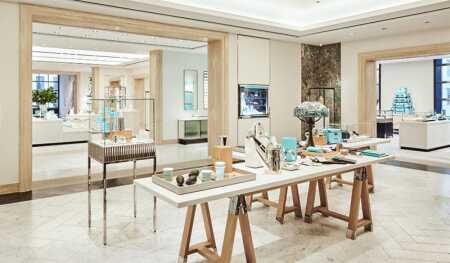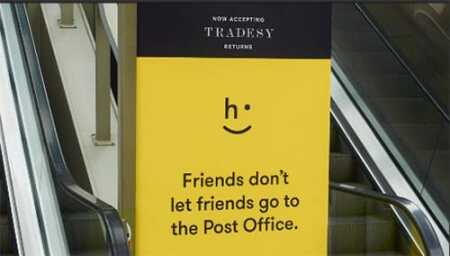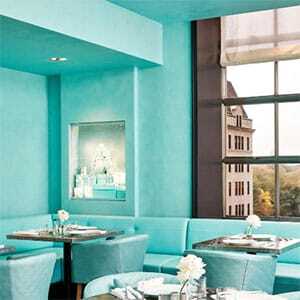The retail industry needs to stop taking sides in the competition between online and brick-and-mortar stores, shopping center developer Nate Forbes said during a panel discussion on global retail at the 2018 ULI Spring Meeting in Detroit.
The focus for mall owners and retailers should be on extending their brand “beyond the four walls of brick and mortar,” said Forbes, managing partner of the Michigan-based Forbes Company, which owns and manages shopping centers in Michigan and Florida.
Forbes was the moderator of a panel discussion that emphasized new ideas and different ways for retailers and mall owners to embrace the online revolution sweeping the industry.
Spring Meeting Resources: Download Presentation
Even old-school retailer Tiffany & Co. is adapting to the times, said Diane Brown, the company’s market vice president. The jeweler is rolling out a new store design that is “lighter and airier,” Brown said. “People can touch the product. We’re not behind the case line any longer.”
Tiffany also opened a Blue Box Café in Manhattan where customers can have an actual “breakfast at Tiffany’s.” The café receives thousands of requests a week for reservations, she said.
The online business works together with the brick-and-mortar stores, she says. But Tiffany also creates local connections as part of its retail strategy, Brown said. “To be successful in any community there needs to be a strong partnership,” she said.
The connection between online and brick-and-mortar operations is at the heart of the business model for Happy Returns, said cofounder and chief operating officer Mark Geller. The Los Angeles–based startup facilitates returns of online purchases, eliminating the hassle of reboxing and shipping for the customer.
Happy Returns sets up a kiosk in a mall or similar locations where customers of online retailers associated with the company can return purchases. There is no fee for the consumer, who receives the refund on the spot; Happy Returns boxes and ships the merchandise back to the retailers, who pay a fee to Happy Returns. The company is currently working with 16 retailers, including Tradesy, Untuckit, and Everlane.
Studies show that the overwhelming majority of online customers prefer to return to brick-and-mortar locations. The connection illustrates the continued power of brick and mortar, he said. Happy Returns has about 75 locations in 15 metropolitan areas and expects to open 100 new locations next week, Geller said.
Happy Returns’ business is a good example of the type of nontraditional activity that helps drive traffic and keep malls relevant, said Forbes, who installed a Happy Returns kiosk in the company’s Somerset Collection mall outside Detroit.
Consumers are driving the retail concepts, not the other way around, he emphasized. His company focuses on providing a better customer experience and exclusivity with retailers. Exclusivity “separates us in places where we have direct competition,” Forbes said.
The Forbes Company has initiated a wide variety of activities and programs to help change the dynamic of its luxury malls, Forbes said. The new ideas include personal shopping suites, style clubs, and in-mall activities, such as yoga classes. “It has to be about the experience,” Forbes said.
In the new environment, the old standards are not good enough, he noted. “Yesterday’s amazing is today’s expected,” he said.
The Forbes Company also hosts a pop-up mall in downtown Detroit, which helps promote the company beyond its traditional malls, he said.
“It is a way for retailers to extend their brands well beyond the suburban areas,” Forbes says.
As an owner and manager, the Forbes Company considers the key to be focusing on engaging customers for the retailers, he said. “Every dollar we spend on marketing is to help” drive purchases for retailers, he told the audience.
In response to a question, Forbes called pop-ups a tricky part of the business. “You don’t want to get too reliant on pop-ups,” he said.
His company’s strategy is to work with new companies looking to test models, but it tries to push established retailers to sign longer leases, he said. “We are interested in curating new ideas and new concepts,” Forbes said. “If they are established, we ask them to make a commitment.”







